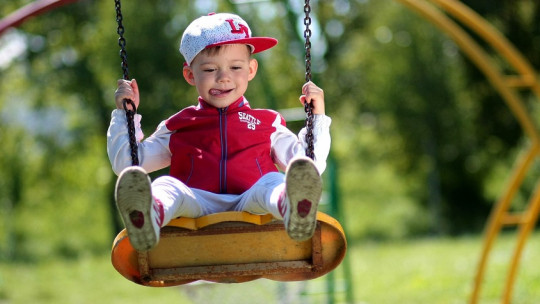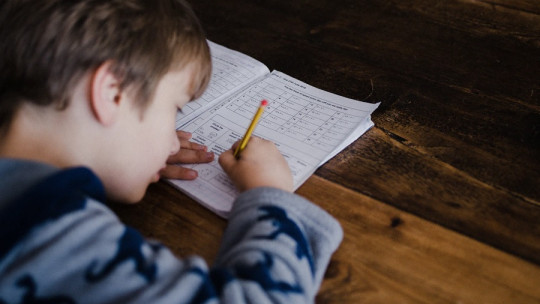
At the time of study, there are many factors that influence the final capacity that the student will have to internalize the learning contents with greater or lesser competence. As we will see below, both the physical and psychological aspects will be equally decisive for achieve effective academic performance
The concept of mental hygiene in the student
Mental hygiene in the study is defined as the set of physical, mental and psychological conditions that facilitate intellectual tasks. In all conduct, successes or failures are largely the consequence of the state of mind where the individual is. If the neurophysiological state is positively predisposed to learning, it is more likely that the abilities to achieve self-confidence will be activated, which are considerably relevant to configuring an adequate motivational state in the acquisition of knowledge. This is strongly influenced by:
These two factors can be favored by the person themselves, creating positive states or attitudes that activate the psychic capacity to the maximum and bring the student closer to success. It is possible, if you take into consideration that internal representation is not a reflection of reality but rather becomes a personal interpretation derived from the particular individual beliefs of the subject in such a way that a person becomes what he thinks about himself.
A person cannot be intelligent or effective as long as he thinks otherwise, one might say. A key aspect, therefore, is to work to change these internal representations so that they are consistent with the idea of success or personal effectiveness. Thus, a fundamental element is to adopt a positive attitude towards one’s intellectual abilities to achieve greater confidence in one’s own possibilities.
Good physical condition and academic performance
Study or intellectual work is a psychic activity and is conditioned by physical health and bodily well-being. The following are distinguished as intervening and determining factors:
The hours of sleep
It is recommended to sleep between 7 and 9 hours a day. You have to recover and rest from the daily mental and physical exhaustion Therefore, more than the quantity, what is most relevant is the quality of sleep, which has to be restful and uninterrupted. That is, the feeling you have when you wake up should be a feeling of relaxation or freshness. Thus, the following is recommended:
Rational eating
A balanced diet is essential for good intellectual performance. The diet should be varied and rich, including fish, meat, eggs, vegetables, fruit, etc. They should not be very abundant meals It is recommended to have a heavy lunch, eat well, and have a smaller snack and dinner. The balance between a healthy diet and regular physical exercise is a key factor.
Physical exercise
Constant and continuous practice is recommended, rather than punctual and extreme. The current pace of life affected by rush, noise, stress, etc. They deteriorate the nervous system itself and cause the appearance of negative characteristics such as being more susceptible, a state of permanent alert, being defensive, irritable, etc.
relaxation
Very useful for students with a tendency to worry or anxiety. A dedication of 15 or 20 minutes a day can be very beneficial to increase mental performance. In a comfortable position with the limbs flexed, eyes closed and leaving the muscles relaxed, the mind is left blank. It is essential that during these minutes there is no type of interruption or external noise. Relaxation repairs the body from both physical and mental fatigue restoring a sense of general peace and tranquility.
- You may be interested: “6 easy relaxation techniques to combat stress”
The psychological well-being of the student
In addition to physical conditions, as mentioned above, psychological factors also play an important role in intellectual performance. Aspects such as level of motivation, self-esteem, concern the general emotional state, anxiety… greatly influence individual behavior.
Thus, it can be a very useful exercise to dedicate a few minutes from time to time to talk to yourself, doing a little reflection on your own mental state and seeing to what extent it is affecting your daily intellectual performance.
According to Tierno (2009) the following phenomena are key factors that They mainly influence the level of emotional well-being and cognitive of the student. All of them interact and are bidirectionally related to the physiological state, promoting an adaptive or detrimental predisposition for the study:
Self-esteem level
That is to say, degree of confidence you have in yourself to achieve good academic results It is important to be aware of both your own capabilities and limitations. A positive attitude consisting of being convinced that with time, effort and enthusiasm success can be achieved, favors the increase of this personality trait.
- Related article: “Low self-esteem? When you become your worst enemy”
Enthusiasm
Having self-confidence and getting rid of complexes in the different areas of interaction (family and school) is a main aspect, although recognition by others helps to enhance this factor
- Related article: “Maslow’s Pyramid: the hierarchy of human needs”
Receptive attitude, curiosity and interest in learning
It is essential that the student presents a good orientation to acquire new knowledge that expands their cultural background Dialogues with teachers and family can enrich and increase curiosity and interest in learning.
Understanding and acceptance of others: ability that allows one to be more sociable, communicative and generous with others.
- Related article: “David Ausubel’s Theory of Meaningful Learning”
In conclusion
Although superficially it may seem that the achievement of learning is exclusively defined by the level of intellectual capacity of the student, in this text multiple phenomena have been described, which in reciprocal interaction, are essential to explain the reason why a student may be below expectations in academic performance.
It is known to be necessary, therefore, to carry out an analysis to determine which of all these elements are altered and to propose a series of measures that re-channel them appropriately.
- Soria, E. (2015) Effective study techniques. Ed: Mestas Editions: Madrid.
- Tierno, B. (2009) The best study techniques. Ed: Today’s Topics: Madrid.








